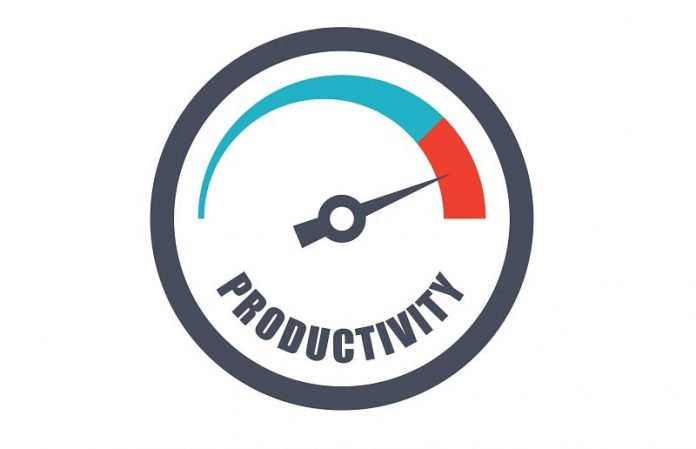When it comes to managing a small business, most small business owners must wear a wide variety of hats. In some cases, you may have to be your own marketing department, accounting department and sometimes even your own graphic design department.
By Joe Peters
Sometimes, important tasks can get lost in the shuffle of juggling so many tasks and having so many responsibilities. Thankfully, in the digital age there are a wide range of online tools, apps and programs available to help you organize your workload. Here are 8 of the best productivity apps available to help you run your small business.
1. G-suite
The G-suite of products is made to be a robust alternative for small businesses to the Microsoft Office suite. The G-suite line of products includes Gmail, Google Docs, Google Drive, and Calendar for Business, which are integrated to all work seamlessly together – much like the Microsoft Office suite. All of the G-suite products are also available as apps for seamless use between desktops and mobile devices. G-Suite is a subscription service available for as little as $5 per user per month for a basic membership and $10 or $25 per user per month for business and enterprise memberships respectively.
2. OneDrive
OneDrive is the Microsoft Office compatible file sharing system comparable to Google Drive. From photos taken out in the field that need to be shared with the office to documents that need to be viewed or edited by multiple people, OneDrive makes sharing and collaboration seamless. OneDrive is available as part of a business subscription to Office 365, with prices ranging from $60 a year per user for storage only up to $150 per year per user with an Office 365 Business Premium subscription.
3. Dropbox
Dropbox is another file sharing option that offers many of the same features as Google Drive or OneDrive, but in a standalone system. Dropbox is a great file sharing option for businesses that use independent contractors or remote workers that use their own systems. Dropbox is also a great option when you want to gather files from clients or non-employees, because they don’t need to have dropbox installed to upload files to you. A standard business subscription to Dropox runs $12.50 per user per month and offers 2 TB of storage or for $20 per user per month, you can get unlimited storage.
4. Slack
Slack is a communication network app that is akin to Facebook Messenger for business. Slack allows you to create multiple channels for various projects or individual threads to address specific questions or needs that an individual or team may have. Groups can chat in a public thread or create private threads to discuss things pertinent only to them. You can also share files, react to individual messages and “ping” individuals within a conversation. Slack is a free app for small businesses or teams, but also offers paid plans for larger teams and businesses.
5. Google Analytics
Google analytics is a powerful and robust program that gives you deep insight into how your business is performing online. From insights into how long people are staying on your site (also known as your bounce rate) to which pages they are clicking on specifically to what is holding their attention the longest, Google analytics helps you get rid of what isn’t working and give your customers more of what they are looking for.
Google analytics has both free and paid versions, depending on your needs.
-
Hootsuite
Hootsuite is a social media manager that helps you manage multiple profiles on multiple sites. Hootsuite gives you the ability to schedule multiple posts in advance to all post at a certain time across multiple platforms as well as offering insights into how certain campaigns are performing across multiple platforms. This allows you to tailor certain content for some platforms, while offering different content on others. Hootsuite plans range from $19 a month for a single user for up to 10 social media profiles to $499 a month for 5 – 10 users to schedule unlimited posts on up to 50 different social media profiles.
-
Trello
Probably one of the oldest productivity tools known to man is the age-old, tried-and-true to-do list. Trello is the to-do list beefed-up, ramped-up and put on steroids. While a single, streamlined to-do list is easy to manage, it become unwieldy when you have multiple people working on the same project, all with multiple to-do lists. Enter Trello. Trello can help you keep all of your many projects on point and on task and give you a comprehensive snapshot of where each project is at any given moment. Best of all, you can use Trello to organize both business and personal to-do lists to streamline your work and personal tasks into one daily to-do list that also helps you stay on track on a weekly, monthly and project-by-project basis.
8. RescueTime
Spending time on social media can be an important part of doing business. In addition, there is nothing wrong with occasionally taking breaks to play a computer game or check your personal e-mail. A few minutes of distraction, however, can quickly become a half an hour or more of wasted time if you’re not careful. RescueTime monitors how much time you spend of various websites and can even give you alerts and warnings if you get distracted and spend too much time on a site.
Joe Peters is a Baltimore-based freelance writer and an ultimate tech enthusiast. When he is not working his magic as a marketing consultant, this incurable tech junkie enjoys reading about latest apps and gadgets and binge-watching his favorite TV shows. You can reach him @bmorepeters
Productivity stock photo by Titov Nikolai/Shutterstock







